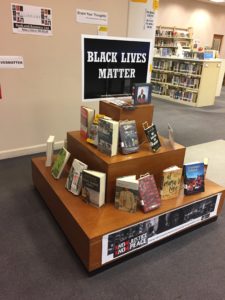How to be Kind to Your Reader: Some Thoughts on George Saunders
George Saunders is big on kindness. When I read the convocation speech he gave at Syracuse University, which is now available to us in a book, Congratulations, By The Way: Some Thoughts on Kindness, which I highly recommend, it got me wondering: if you write fiction, as Saunders does beautifully, is there such a thing as being kind to your reader?
I happen to believe that there is. Kindness begins with respect, human being to human being. The writer of fiction should assume that the reader is an intellectual equal. Now, I know George Saunders knows more than I do, and when I read his Lincoln in the Bardo, I relished the challenge of keeping up. This masterpiece of a novel, about souls in a literal or figurative state of transition, tells the story—from a wildly original point of view—of Abraham Lincoln in the hours surrounding his beloved 11-year-old son Willie’s death from typhoid fever. Even though I wandered through some pages, disoriented as a blind squirrel looking for a nut, I trusted that Saunders would lead me to the light.
No one likes to be talked down to or treated with condescension. I used to tell my high-school English students, “In a three-page paper, you only need to say it one time. I know I’m old, but my memory is still intact. You don’t need to restate your thesis in the conclusion. Use that space and opportunity to tell me something related to your topic that I may not know.” Saunders taught me a lot, not only about American history, but also about tone and characterization and pacing and structure. Fiction writers are teachers, too. I choose to read writers whose ability level is far beyond mine so that I might learn from them.
Kind writers allow the love for their craft to show. When I read Saunders, I’m reminded of my ninth-grade geometry teacher who could not hide her admiration for the beauty of a geometrical proof. Her voice would change; her eyes would shine. I witness that same kind of joy in Lincoln in the Bardo. Imagine Saunders’ delight when he discovered that, in 1861, the President received a letter that read, “Mr. Abe Lincoln, you don’t Resign, we are going to put a spider in your dumpling….” (There’s more to that letter that made my mouth fall open in horror; see page 233 for details.) As I read these words a second time, I can almost see Saunders hopping out of his desk chair and jumping around like he’d won the lottery. Ali Smith is another awe-inspiring contemporary fiction writer easy to catch in the act of joy; her novel How to be Both is as inventive and challenging as Lincoln in the Bardo. I don’t know if Smith and Saunders have met, but I believe they’d become the fastest of friends.
A kind fiction writer embraces economy of language. One of the mantras of the editor and publisher should be, “No self-indulgence allowed.” A writer flaunting his flair with intricate similes or veering off on an unrelated tangent reveals a selfishness, not to mention a startling lack of awareness, that someone other than he will be reading the words. With their enlarged empathy genes, kind writers know better than anyone that there are plenty of other A+ novels their readers could have chosen instead. “Kindness, it turns out, is hard,” Saunders told the student body at Syracuse, where he teaches creative writing—also hard if done well, and worth all the precious time and emotional energy and sleepless nights when one reader says, “Those words on that page: I am pretty sure that you wrote them just for me.”
Jenny Hubbard lives in the town of her childhood (Salisbury, NC) and works at the public library where she first learned to read. Her two novels, Paper Covers Rock and And We Stay (Delacorte Press, Penguin Random House), feature teenage protagonists who come to rely on poetry as a way to order the chaos. An English teacher for seventeen years, Jenny believes she learned more from her students than they ever learned from her. She is currently under the tutelage of her rescue dog, Oliver.

